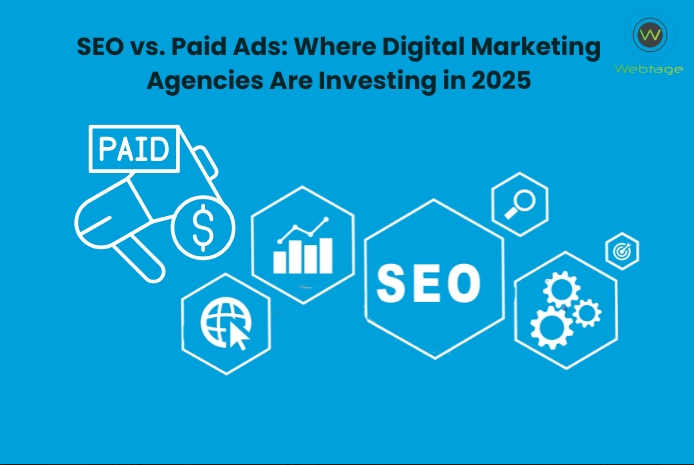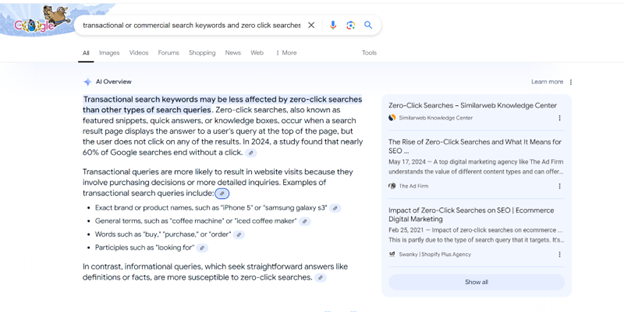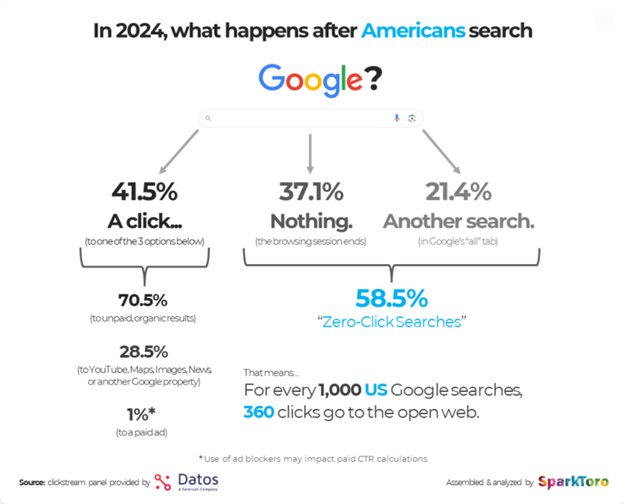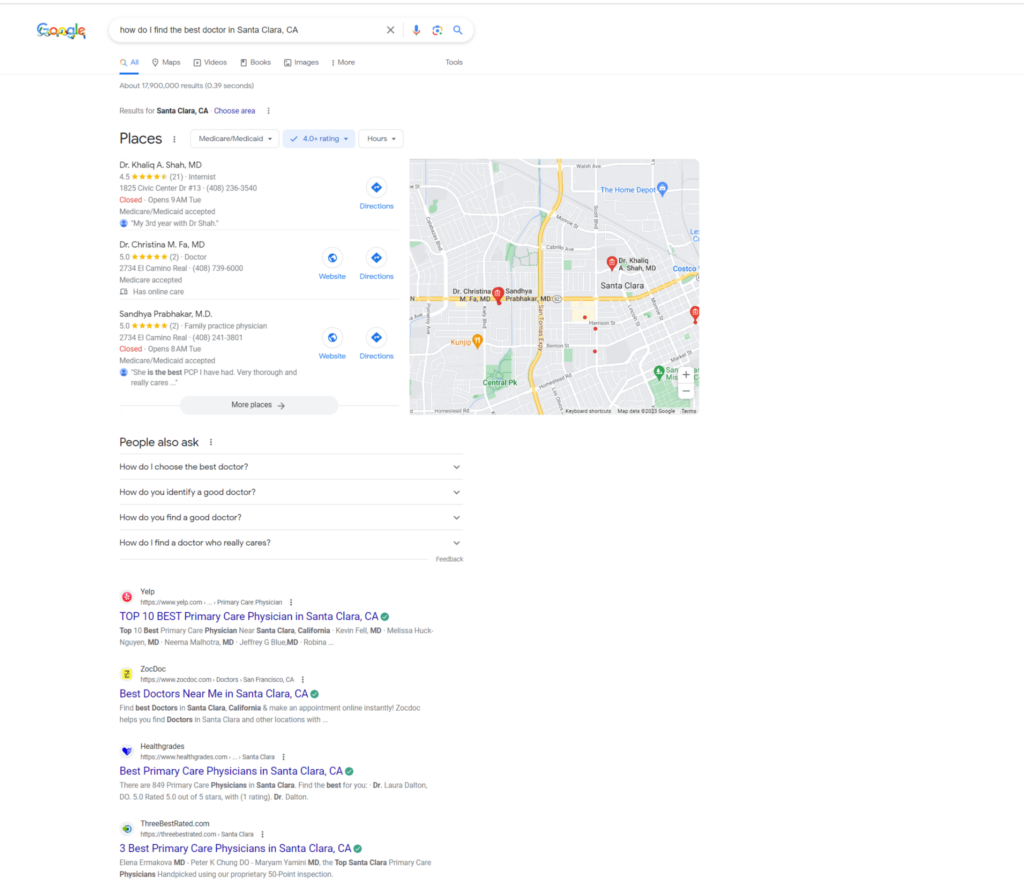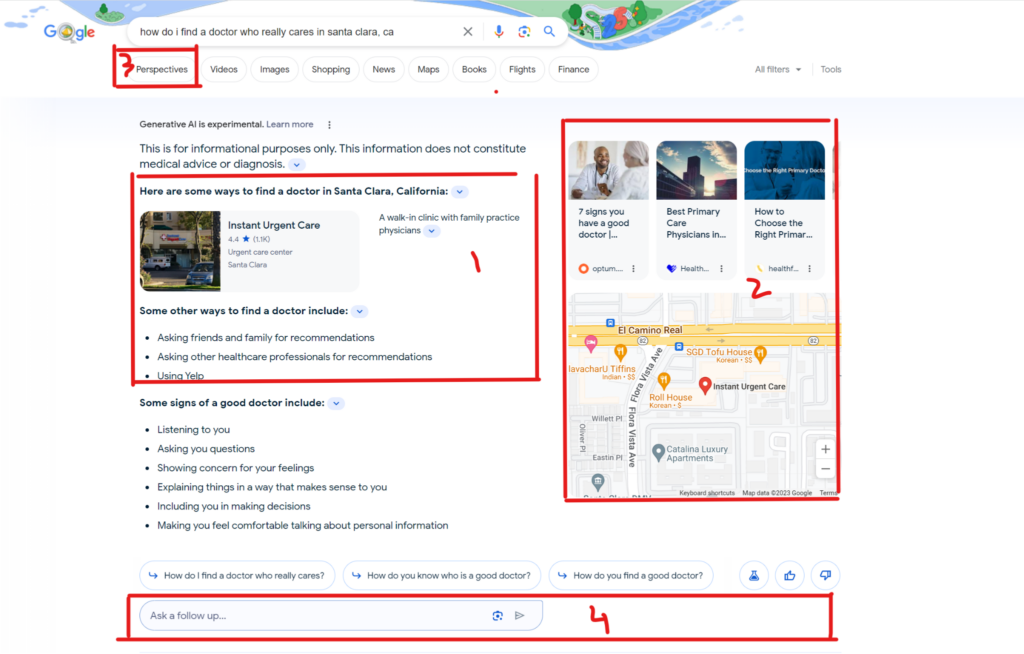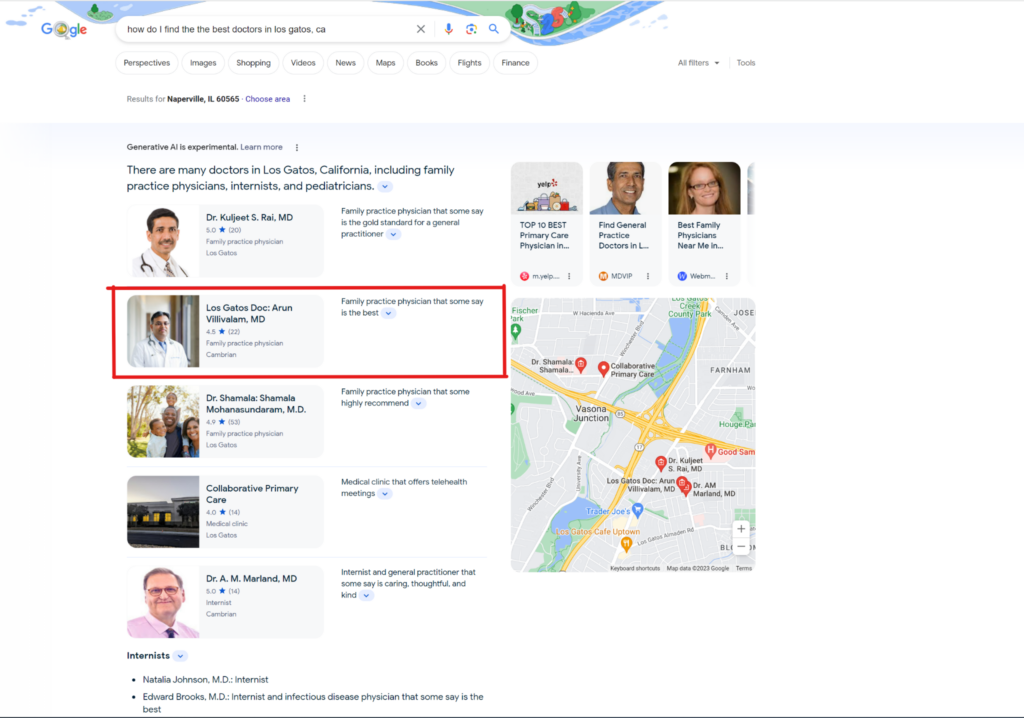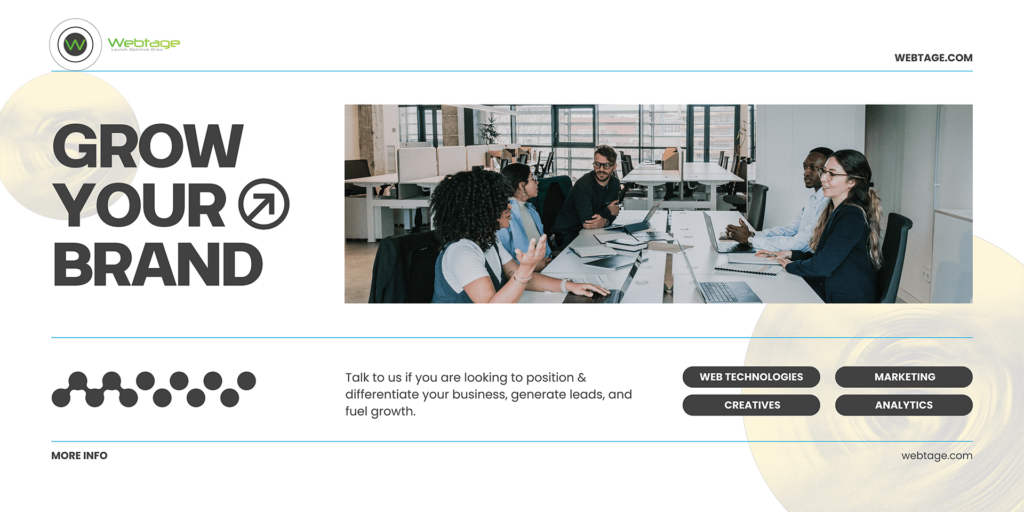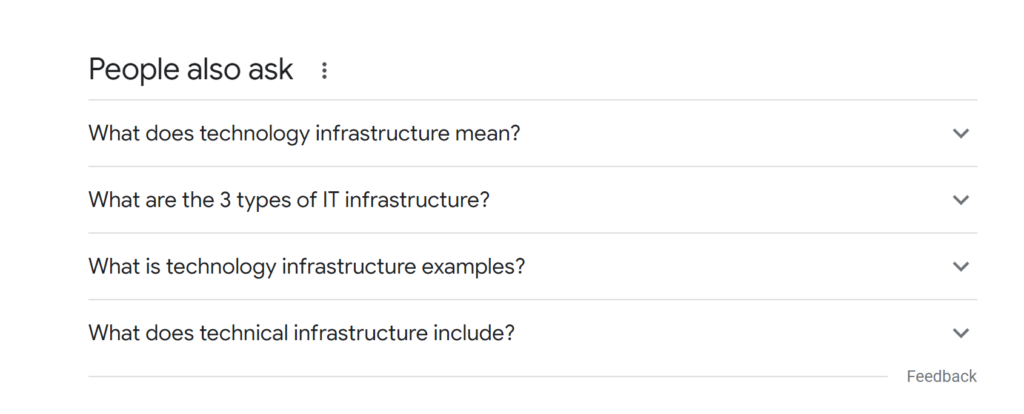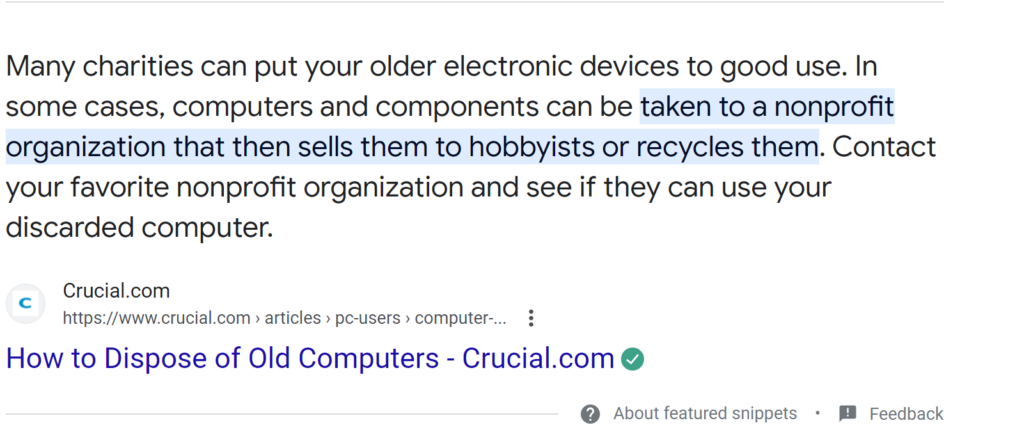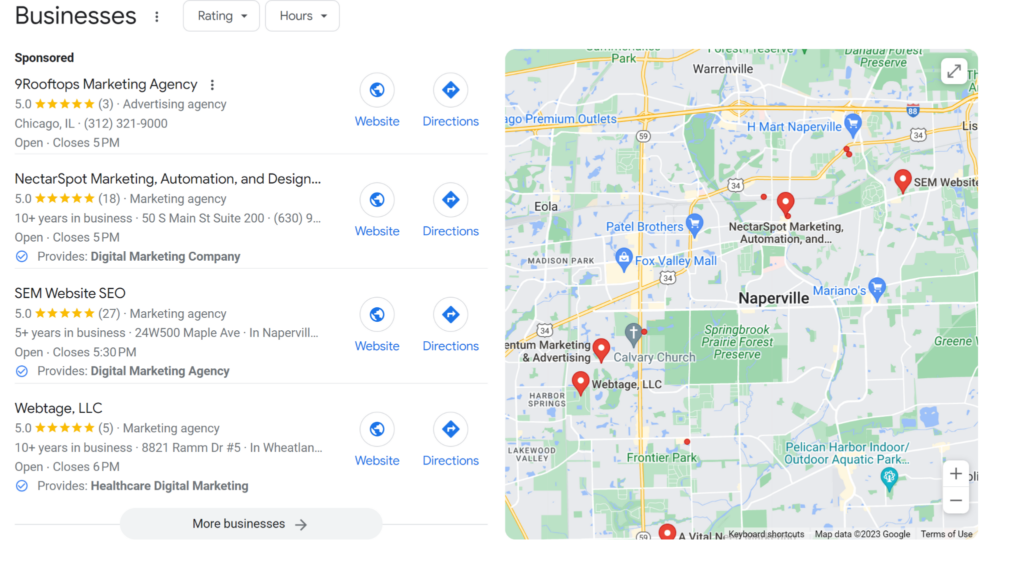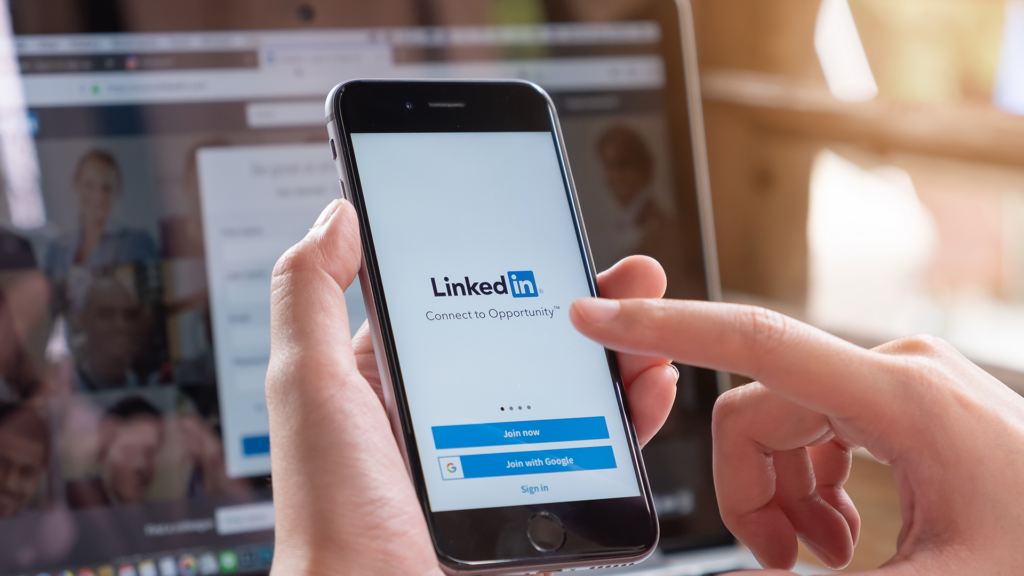
As technologies powering location-based ad targeting become more advanced, marketers are looking at geofencing ad platforms as a way to complement or even substitute traditional digital ad platforms, such as Google Ads.
While both geofencing platforms and traditional paid media channels offer location-aware marketing options, they differ in levels of granularity, the layering of audience targeting, the technologies that drive the two platforms and results they can produce.
Based on our firsthand experience running campaigns on both platforms, this blog will walk through a detailed comparison and the results we achieved.
Geofencing vs Geotargeting –
Semantics matter, especially in the marketing world, where words can mean completely different things in terms of what’s truly being offered, its value, and what to expect from the offer. To make sure we are on the same page, let’s define geofencing and how it is different from geotargeting—as these two terms are often used interchangeably.
Geofencing involves the creation of a virtual boundary, i.e., a “fence” around a specific geographic area using GPS, RFID, Wi-Fi, or cellular data and then targeting individuals based on their visitation to these geofenced locations. Some common targeting options includes:
- Capability to display an ad when a device enters or exits this boundary, aka on-premise targeting
- Capability to target users (via their mobile devices) that have previously visited a geofenced location
- Capability to target neighborhoods that show high visitation frequency to a particular store or location, aka neighborhood targeting
- Finally, geofencing platforms can also provide geotargeting, which simply means delivering ads to people in a certain zipcode, city, state of country, irrespective of whether they have entered or exited a fence.
In that sense, geofencing ad platforms offer geotargeting options but go beyond to also offer a broader range of location-based geofenced targeting.
For the sake of this article, I will be focusing on Ground Truth, a geofencing ads platform that I have experience in and compare it to Google Ads, a traditional paid media channel.
Let’s start by understanding differences in technologies, audience targeting (beyond location parameters) and cost structure. Then we will dive into performances and end with platform recommendations.
Technologies, Audiences & Cost
Technologies Powering Ad Targeting –
Ground Truth employs proprietary “Blueprints” technology to create polygon mapping of physical spaces with high accuracy, allowing for multi-level geofencing: in-store, on-lot, and retail area. This permits advertisers to target physical locations with accuracy.
How granular can you go once you’ve drawn a polygon fence? Well you can laser target with a minimum of 0.1 mile or 528 feet around a geocode. This level of granularity is what allows you to choose if you want to target people in-store, on-lot, or even the parking lot.
This is a big deal! Imagine if you are a coffee shop and you want to attract coffee drinkers who are in the parking lot of a competitor coffee shop. You can offer them discounts and incentivize them to come to your coffee shop instead!
Google Ads, on the other hand, offers geotargeting largely through radius targeting and existing geographic locations like cities or zip codes. Capable of wide targeting, it is less intensely targeted than GroundTruth’s POI-level mapping.
Winner: Ground Truth as it offers very granular targeting of geofenced locations in addition to geotargeting options.
Layering in Audience Targeting –
Ground Truth offers improved audience targeting by layering in location targeting along
behavioral audiences that combine visitation patterns with demographic data to create segments like “Luxury Shoppers” or “Fast Food Diners.” The platform also allows for custom segments based on individual campaign goals.
Bear in mind that Ground Truth does not permit targeting of sensitive audience segments including targeting based on health, race, religion, sexual orientation, political beliefs etc.
One notable difference between the two platforms is in the permissiveness or openness of each platform toward targeting audiences. Google Ads offers more relaxed audience layering, such as on the basis of inferred interests and tendencies that tend to coincide with sensitive subjects such as health conditions, political beliefs, or cultural membership — although these are not labeled as such. We presume this is because Google Ads relies heavily on machine learning and cross-channel signals to classify interests — not direct self-identification. In contrast, Ground Truth relies completely on visitation data that are subject to stricter privacy controls around mobile location signals.
Winner: Google as they have billions of real-time intent signals through their proprietary systems. This combined with probabilistic modeling provides Google with unparalleled audience data.
Cost Structure:
Ground Truth offers two bid types, cost per click (CPC) and cost per mile (CPM, which translates into cost per thousand impressions) with two optimization strategies: maximize delivery & maximize clicks.
In terms of bid type, they suggest a minimum CPM of $3.5, but for short-flight campaigns or event-based campaigns, they suggest a CPM of $10-15. For video campaigns, the minimum CPM is $8 and for OTT & CTV platforms, the minimum spend is $25 and for streaming audio ads (say, on a podcast), the minimum spend if $19.
Google bid types also include CPC and CPM, but their optimization options are broader and include not just delivery or click optimization, but conversion, conversion value and target return on ad spend (tROAS) optimizations as well.
Winner: Google. The reason why Google wins this round is because of their conversion and revenue optimization focus that leads to better conversions and revenue generation.
Media Type:
Ground Truth offers a much wider range of devices to display their ads, including web (web & app), desktops, Connected TVs (CTVs that refer to devices that can connect to the internet and stream digital content, like smart TVs, gaming consoles, and streaming sticks, like Roku, Fire & Stick), Audio streaming, and OTT platforms.
Google Ads, also offers the ability to render ads on search, display, Gmail, video channels like YouTube, Discover & Maps, they do not offer the wider range of media types that Ground Truth offers.
Note: Google also offers CTV, OTT & audio streaming ads through its separate DV360 platform. For our comparison purposes, we are limiting our analysis to the Google Ads platform only.
Winner: Ground Truth. The wide media type choice makes Ground truth the winner here. The caveat being that Google also offers wider media types but you would have to use its DV 360 ad platform to expand your media type options.
How Did the Two Compare in Terms of Performance?
We recently ran campaigns to drive foot traffic to our client’s thrift stores and here is the performance snapshot
Impressions & Clicks: Ground Truth drove 4,819 clicks on 335,000 impression compared to 1,920 clicks on 311,941 impressions on Google for a comparable budget.
Store Visits: Google easily took the prize here with 183 store visits compared to ~15 visits generated by Ground Truth.
The vastly superior campaign performance on Google needs to be taken in with a grain of salt.
While both campaigns had similar budgets, the wide difference in attributed store visits likely reflects methodology differences in tracking versus campaign performance.
Google Ads has the benefit of vast device coverage and probabilistic modeling based on user behavior across Google services. GroundTruth, by contrast, uses stricter location-based criteria, which can result in fewer — but potentially more accurate — visit attributions.
Let’s discuss these one-by-one:
Vast number of Real-time signals – Google capitalizes on its own vast network of Android OS users whose location history is turned on by default. It also uses a combination of GPS, Wi-Fi, and Google Maps data from users logged into their Google accounts. Ground truth, in contrast, uses mobile location signals gathered from SDKs within 3rd-party apps and often requires opt-in location permissions via those apps.
Strict Visits vs Inferred Visits – To further hone in on the difference in performance, Google Ads visitation criteria is modeled and inferred, whereas Ground Truth visits are more conservative, but high confidence.
As a result of the difference in attribution models, Google may attribute more visits — even if some are probabilistic — because of its expansive data and modeling.
Attribution Window – Google is likely to apply a longer attribution window (e.g., 30 days post-click or post-view). Ground Truth is likely to apply shorter attribution windows and more restrictive visit validation rules (e.g., 7-day window, presence verification).
Such differences in timeframe and underlying logic can significantly affect visit counts.
Conclusion
Both platforms offer highly advanced location-based targeting to help you reach your objectives. The right choice ultimately depends on your campaign goals, budget flexibility, and how precisely you want to target or measure results.
If you seek to gain most from laser-targeting individuals within physical boundaries of a location— like a competitor’s storefront or an event venue, — geofencing is the way to go. The location granularity and precision of geofencing platforms make it an easy win.
If you want to layer in rich behavioral data, such as audience interests, affinity, or intent to make a purchase, both platforms offer some very solid and relevant choices, but Google Ads offers broader audience reach and greater flexibility in terms of sensitive interests.
Finally, if you are interested in running conversion- or revenue-driven campaigns. Google’s massive data ecosystem and superior attribution modeling also give it an edge for optimizing performance at scale.
In conclusion, the most effective strategy may not be choosing one over the other — but testing both. Blending geofencing’s spatial accuracy with Google’s audience intelligence will unlock powerful synergies that allow you to reach the right people, at the right location, with the right message.
Looking to explore the best marketing mix for your business? Contact Webtage, a results-driven digital advertising agency recognized for excellence and repeatedly exceeding client expectations with 6x–10x campaign ROI.



